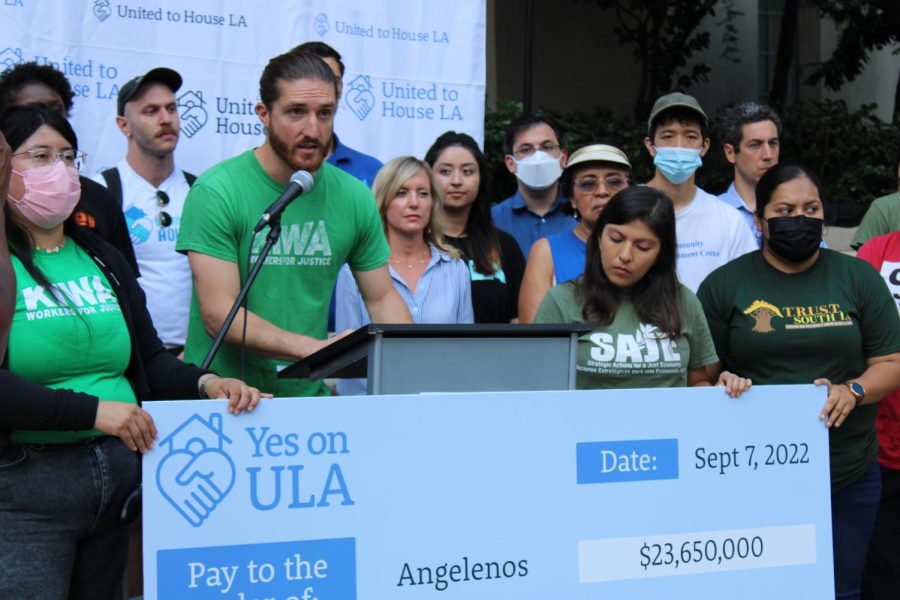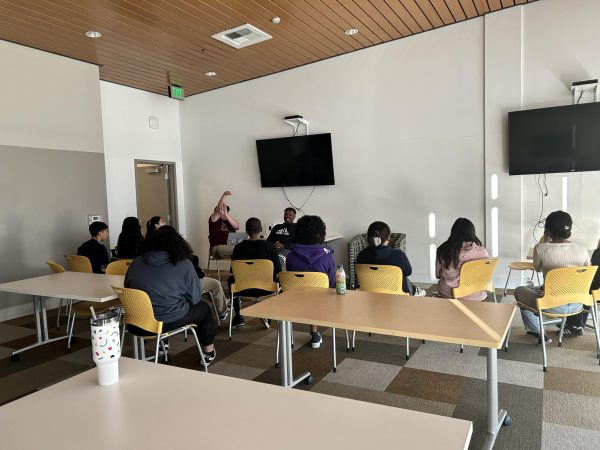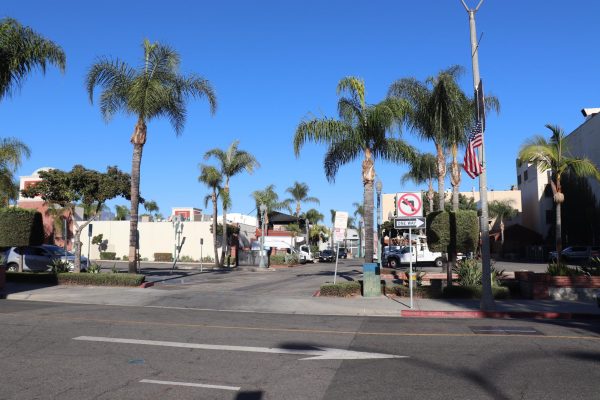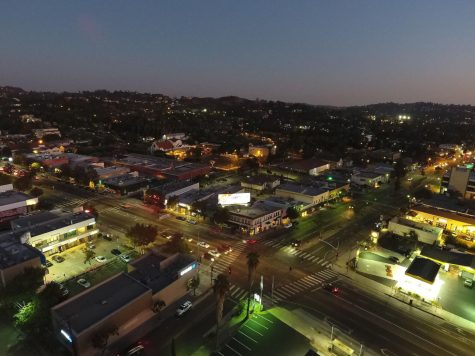City of LA measure ULA: Affordable housing could benefit homeless, elderly
Campaign manager promotes the measure
Campaign Manager Yuval Yossefy is so excited about a city of Los Angeles ballot measure to tax millionaires, billionaires, and corporations in order to fund affordable housing efforts.
That’s why he is working full-time on the measure, called ULA.
Yossefy, who previously worked at the Legal Aid Foundation of Los Angeles to help administer the Stay House LA eviction prevention program, said the measure is in line with his personal political philosophy.
“This is a once-in-a-lifetime opportunity for the city of LA,” Yossefy said. “Our campaign estimates that the tax will raise $875 million per year.”
Supporters of the measure say it would generate more revenue, build homes and prevent homelessness — critical to addressing the city’s biggest obstacles. Opponents say property already costs so much in California so additional costs are unwarranted and they say it’s not fair to penalize people and groups who have worked hard to earn their money by asking them to subsidize affordable housing.
The measure would raise “transfer taxes” — or taxes on properties when they are sold — by 4% for properties between $5 million and $10 million and 5.5% for properties sold for $10 million or more.
This would only affect about 4% of real estate transactions a year and 72% of the revenue raised would come from properties that are sold for over $10 million, according to a report on the measure by UCLA’s Lewis Center for Regional Policy Studies. Less than 3% of single-family homes or condos sold in a given year would be affected.
The Lewis Center report also estimates that the measure could raise over $900 million a year, based on recent county assessor data.
Opponents say higher transfer taxes could potentially be passed onto renters. The Lewis Center says that is unlikely because transfer taxes are usually paid by the seller, who no longer has renters because they won’t own the building anymore.
The money produced will go to programs helping the homeless and helping create affordable housing developments.
Supporters like Lucas Garcia said the number of homeless people and the conditions they live in have worsened over time in the decades he has lived in the city.
“There were a lot of divisions in my neighborhood as a kid, we knew certain places were to be avoided now everything is becoming gentrified,” said Garcia, who grew up in West Adams and now lives in South Central Los Angeles.
He said it’s time for change and this measure could be an important solution and added that the rich should be tapped to help because they have the means.
Keydan Mijoi, a South Los Angeles resident who is unemployed, said he opposes the measure because he said “it’s not fair” to make people who have worked hard to earn their money pay more.










